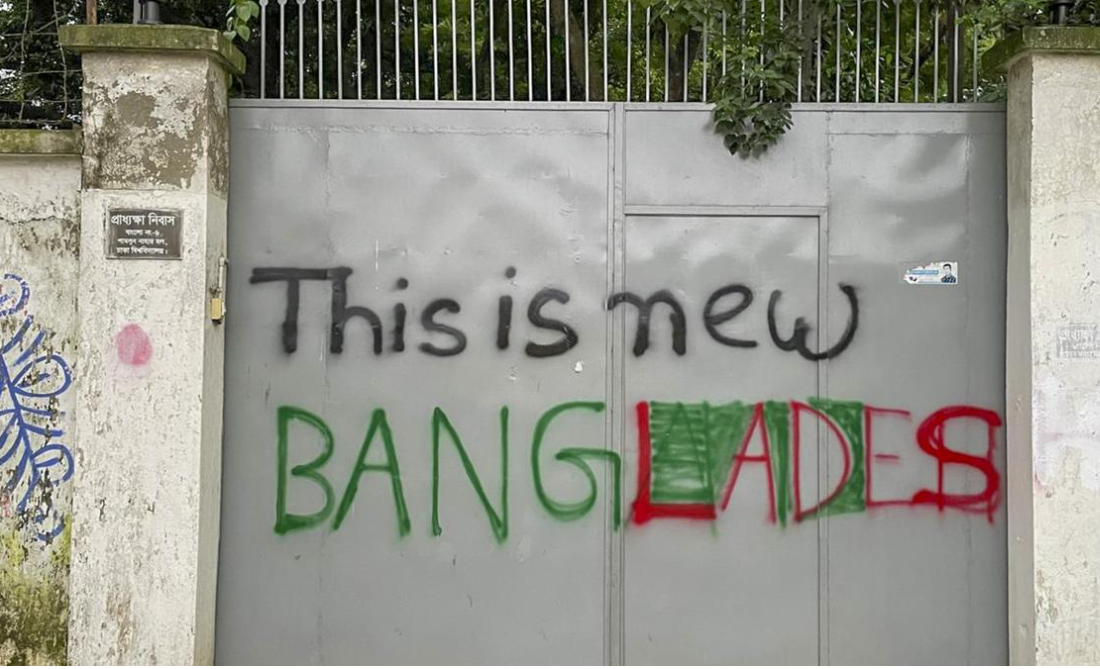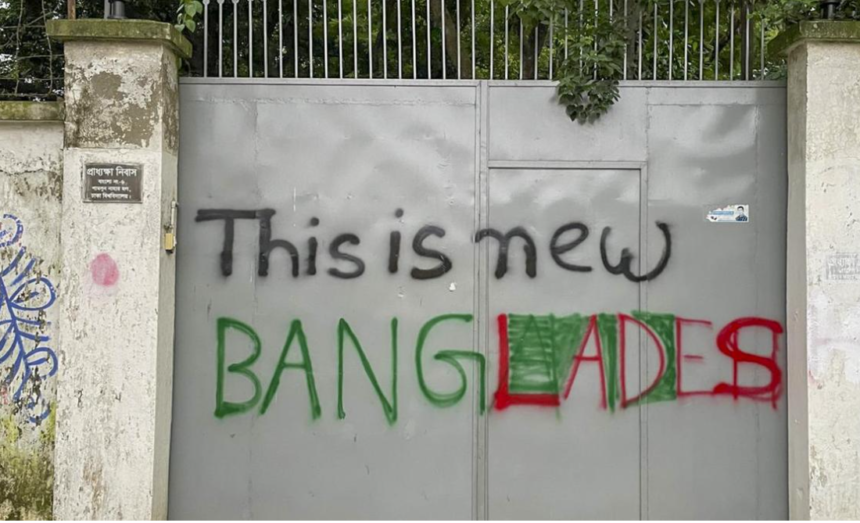Sheikh Hasina, the prominent political figure who has shaped the trajectory of Bangladesh over the past few decades, is now embroiled in a legal battle that threatens to upend her legacy and influence. After her recent ouster from power, Sheikh Hasina is facing 33 cases, including 27 charges of murder, four cases related to crimes against humanity and genocide, and one charge of abduction. This development has sent shockwaves through the political landscape of Bangladesh and has raised questions about the motivations behind these charges, the state of the judiciary, and the future of democracy in the country.
This article delves into the details of the cases against Sheikh Hasina, explores the historical and political context leading up to this moment, and examines the potential implications for Bangladesh’s political future.
The Charges: A Breakdown of the Cases Against Sheikh Hasina
Sheikh Hasina, who served as the Prime Minister of Bangladesh for several terms, is now facing an array of charges that paint a grim picture of her time in office. The charges include:
- Murder Charges (27 Cases): The most serious of the charges, these 27 cases accuse Sheikh Hasina of being involved in or responsible for multiple murders during her tenure. These cases are particularly controversial, as they involve both political opponents and civilians who allegedly lost their lives due to actions ordered or condoned by her government.
- Crimes Against Humanity and Genocide (4 Cases): These charges accuse Sheikh Hasina of committing crimes against humanity and genocide, particularly in relation to her government’s actions against opposition groups and minority communities. These charges are tied to incidents of mass violence and repression that occurred under her administration.
- Abduction (1 Case): The charge of abduction relates to the alleged kidnapping of a political opponent or a person connected to a political controversy. This case, though singular, is emblematic of the broader accusations of political repression during Hasina’s rule.
These charges represent a significant escalation in the legal and political battles that Sheikh Hasina has faced throughout her career. They also reflect the deep divisions within Bangladesh’s political landscape, where power struggles often spill over into the judicial arena.
Historical and Political Context: The Rise and Fall of Sheikh Hasina
To understand the gravity of the charges against Sheikh Hasina, it is important to place them within the broader historical and political context of Bangladesh.
The Rise of Sheikh Hasina
Sheikh Hasina, the daughter of Bangladesh’s founding father Sheikh Mujibur Rahman, has been a central figure in the country’s politics for decades. After her father’s assassination in 1975, Hasina became the leader of the Awami League, one of Bangladesh’s major political parties. She first came to power in 1996, serving as Prime Minister until 2001. After a period in opposition, she returned to power in 2009 and remained in office until her recent ouster.
During her time in power, Sheikh Hasina implemented significant economic reforms, expanded social welfare programs, and made strides in improving Bangladesh’s infrastructure. However, her tenure was also marked by allegations of authoritarianism, political repression, and human rights abuses. The government’s crackdown on opposition parties, journalists, and activists drew international criticism, and the conduct of elections during her rule was often questioned.
Political Repression and Controversy
Sheikh Hasina’s political career has been marked by a series of controversies and legal battles. Throughout her time in office, she faced numerous allegations of corruption, abuse of power, and political violence. Her government was accused of using the judiciary and law enforcement agencies to silence political opponents and suppress dissent.
The most notable of these controversies was the crackdown on the Bangladesh Nationalist Party (BNP) and its leader Khaleda Zia, Hasina’s long-time political rival. The rivalry between the two leaders, often referred to as the “Battle of the Begums,” has defined Bangladeshi politics for decades. Under Hasina’s government, several BNP leaders were jailed, and the party faced significant obstacles in participating in elections.
In addition to political repression, Sheikh Hasina’s government was also accused of targeting minority communities, particularly the Hindu and indigenous populations, through discriminatory policies and violence. These actions have been cited in the cases of crimes against humanity and genocide that she now faces.
The Ouster and Legal Battles
Sheikh Hasina’s recent ouster from power was the culmination of years of political tension and public dissatisfaction. The 2023 elections, widely criticized for alleged voter suppression and irregularities, led to widespread protests and a demand for her resignation. Under pressure from both domestic and international actors, Hasina was eventually forced to step down.
Following her ouster, the new government quickly moved to open investigations into her time in office. The charges of murder, crimes against humanity, and abduction were brought forward by a combination of political opponents, civil society groups, and victims’ families. The cases have been fast-tracked through the courts, leading to accusations that the judiciary is being used as a tool for political retribution.
The State of the Judiciary: Justice or Revenge?
The charges against Sheikh Hasina have raised important questions about the state of the judiciary in Bangladesh. Critics argue that the cases are part of a broader campaign to discredit and punish Hasina for her years in power, rather than a genuine pursuit of justice.
Judicial Independence Under Scrutiny
One of the central concerns is the independence of the judiciary. Throughout her time in office, Sheikh Hasina was accused of undermining the independence of the courts, using them to target political opponents and suppress dissent. Now, as she faces charges herself, there are fears that the judiciary is being manipulated by the new government to settle political scores.
The speed with which the cases have been brought to court and the severity of the charges have led to accusations that the legal process is being rushed to ensure a quick conviction. Observers have noted that the courts have shown little interest in considering the broader context of the alleged crimes, focusing instead on securing a conviction.
International Reactions and Concerns
The international community has expressed concern over the charges against Sheikh Hasina, with human rights organizations and foreign governments calling for a fair and transparent legal process. Some have warned that the cases could further destabilize Bangladesh, leading to increased political violence and a potential breakdown of law and order. 
The United Nations and the European Union have called for an independent investigation into the charges, with a particular focus on ensuring that the rights of the accused are respected. There have also been calls for international observers to monitor the trials to ensure that they meet international standards of fairness and impartiality.
Implications for Bangladesh’s Political Future
The charges against Sheikh Hasina have significant implications for the future of Bangladesh’s political landscape. The outcome of these cases could determine not only Hasina’s fate but also the broader trajectory of the country’s democracy.
The Future of the Awami League
As the leader of the Awami League, Sheikh Hasina has been the face of the party for decades. Her legal troubles have thrown the party into disarray, with internal divisions emerging over how to respond to the charges. Some factions within the party have called for a new leadership to distance themselves from Hasina, while others remain loyal to her and believe that the charges are politically motivated.
The future of the Awami League will likely depend on the outcome of Hasina’s trials. If she is convicted, the party could face a significant decline in support, particularly if the trials are perceived as legitimate by the public. On the other hand, if she is acquitted, the party could rally around her and use the trials as evidence of political persecution.
The Role of the Opposition
The opposition parties, particularly the BNP, have welcomed the charges against Sheikh Hasina, seeing them as an opportunity to weaken the Awami League and reclaim political power. However, the opposition’s role in the legal process has also been criticized, with some accusing them of using the courts to achieve what they could not accomplish through elections.
The BNP and other opposition parties will need to navigate the legal and political complexities of this situation carefully. While they may benefit from Hasina’s legal troubles in the short term, they also risk being seen as complicit in a judicial process that is perceived as unfair or politically motivated.
The Future of Democracy in Bangladesh
The charges against Sheikh Hasina and the broader political context in which they are occurring have raised serious concerns about the future of democracy in Bangladesh. The use of the judiciary as a tool for political retribution, combined with the deep divisions within the country, could lead to further erosion of democratic norms and institutions.
For democracy to thrive in Bangladesh, it is essential that the legal process against Sheikh Hasina be conducted fairly and transparently. This includes ensuring that her rights as a defendant are respected, that the charges are thoroughly investigated, and that the trials are conducted in accordance with international standards.
Conclusion
The 33 cases against Sheikh Hasina, including charges of murder, crimes against humanity, and abduction, represent a significant moment in Bangladesh’s political history. These charges have the potential to reshape the country’s political landscape, impacting not only Hasina’s legacy but also the future of the Awami League and the broader democratic process in Bangladesh.
As the trials proceed, it will be crucial for all parties involved to ensure that the legal process is fair and transparent, and that it serves the interests of justice rather than political retribution. The outcome of these cases will not only determine Sheikh Hasina’s fate but also set a precedent for how political power is contested and exercised in Bangladesh moving forward. ALSO READ:- Israel Kills Top Palestinian Militant as Gaza Truce Talks Stumble: A Complex Conflict Intensifies 2024





